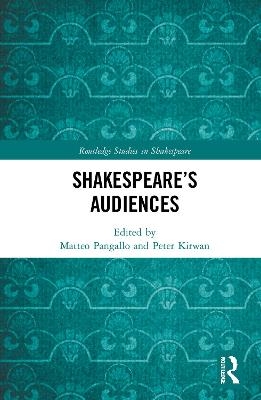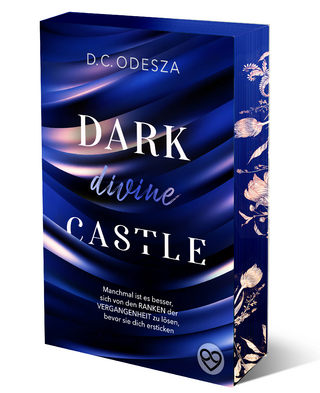
Shakespeare’s Audiences
Routledge (Verlag)
978-0-367-71546-5 (ISBN)
Shakespeare wrote for a theater in which the audience was understood to be, and at times invited to be, active and participatory. How have Shakespeare’s audiences, from the sixteenth century to the present, responded to that invitation? In what ways have consumers across different cultural contexts, periods, and platforms engaged with the performance of Shakespeare’s plays? What are some of the different approaches taken by scholars today in thinking about the role of Shakespeare's audiences and their relationship to performance? The chapters in this collection use a variety of methods and approaches to explore the global history of audience experience of Shakespearean performance in theater, film, radio, and digital media. The approaches that these contributors take look at Shakespeare’s audiences through a variety of lenses, including theater history, dramaturgy, film studies, fan studies, popular culture, and performance. Together, they provide both close studies of particular moments in the history of Shakespeare’s audiences and a broader understanding of the various, often complex, connections between and among those audiences across the long history of Shakespearean performance.
Matteo Pangallo is an Assistant Professor of English at Virginia Commonwealth University. Peter Kirwan is Associate Professor of Early Modern Drama at the University of Nottingham.
Matteo Pangallo and Peter Kirwan, "Introduction."
Embodied Audiences
Stephanie Shirilan, "Respiratory Sympathy and Pneumatic Community in Shakespeare."
Joe Falocco, "Recovering the Humoral Body through Original Practice Performance."
Jennifer A. Low, "Haptic Experience and Fluid Boundaries: Macbeth and Czech Nationalism at Český Krumlov's Revolving Theater."
Constructing Audiences
Romola Nuttall, "The most lamentable Romaine Tragedie of Titus Andronicus and Audiences from the Inns of Court."
Miles Drawdy, "‘Cleave the General Ear’: Shakespeare and the Cultural Bias of Early American Radio."
Koel Chatterjee, "Indian Shakespeare Cinema and the Active Audience."
Pascale Aebischer, "Gender, Aura, and the Close-Up: Broadcasting Shakespeare for Female Audiences."
Performing Audiences
Edel Lamb, "Shakespeare’s Riotous Audiences: Macbeth at Astor Place, 1849."
Adam Sheaffer, "‘How novelty may move’: Play and the Boundaries of the Play in the New York Shakespeare Festival’s Mobile Theatre."
Louise Geddes, "Imagined Theater: Why Fan Audiences Matter."
Observing Audiences
Valerie M. Fazel, "‘A vulgar comment will be made of it’: YouTube and Robert Weimann’s Platea."
Rachael Nicholas, "Shakespeare’s Digital School Audience: Agency and Control in the Reception of an RSC Schools’ Broadcast."
Emily Lathrop, "For Everybody: Casting, Race, and Audience Engagement in The Public Theater’s Mobile Unit."
| Erscheinungsdatum | 31.03.2021 |
|---|---|
| Reihe/Serie | Routledge Studies in Shakespeare |
| Zusatzinfo | 5 Halftones, black and white; 5 Illustrations, black and white |
| Verlagsort | London |
| Sprache | englisch |
| Maße | 152 x 229 mm |
| Gewicht | 471 g |
| Themenwelt | Literatur ► Lyrik / Dramatik ► Dramatik / Theater |
| Geisteswissenschaften ► Sprach- / Literaturwissenschaft ► Anglistik / Amerikanistik | |
| Geisteswissenschaften ► Sprach- / Literaturwissenschaft ► Literaturwissenschaft | |
| ISBN-10 | 0-367-71546-5 / 0367715465 |
| ISBN-13 | 978-0-367-71546-5 / 9780367715465 |
| Zustand | Neuware |
| Informationen gemäß Produktsicherheitsverordnung (GPSR) | |
| Haben Sie eine Frage zum Produkt? |
aus dem Bereich


